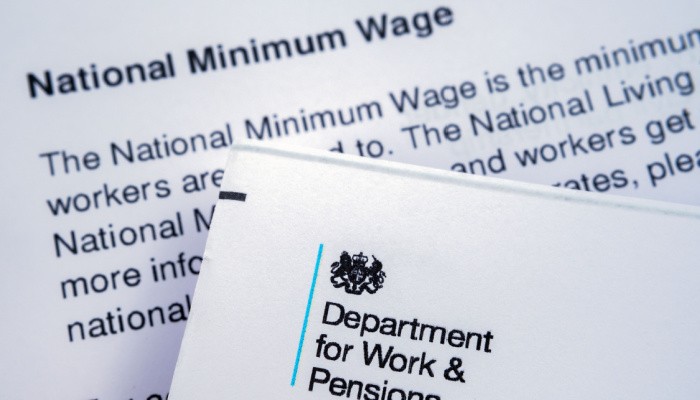The Department for Business and Trade has published a list of 202 companies that failed to pay their lowest-paid workers the minimum wage.
Ranging from major high street retailers to small businesses and traders, the named companies have altogether underpaid 63,000
workers.
Not only have these employers been ordered to repay their workers, but they also face penalties of almost £7 million for breaching the law.
The naming and shaming of non-complying companies and charging of penalties makes it clear that no business is exempt from paying the minimum wage.
However, with even major retailers being caught out, it is also clear that statutory minimum wage rules can be complicated, and compliance can be difficult.
Let’s look into some of the reasons for these failures, and how other employers can learn from them to avoid breaking minimum wage laws.
Why aren’t businesses paying minimum wage properly?
The minimum wage is meant to be a guarantee that all workers in the UK will receive a decent standard of pay to help them afford average living costs.
Investigations by HMRC between 2017 and 2019 found that the named companies underpaid workers by either deducting pay from wages, failing to compensate workers correctly for working time, or paying the wrong apprenticeship rate.
The details have only been published now after allowing time for companies to appeal and make the repayments owed, but this proves that more education is needed – for example, on when deductions for lunch breaks or uniform costs are violations.
Work uniforms
Many businesses do not realise that the rules regarding staff uniforms can differ, depending on whether uniforms are a condition of employment or optional.
If workers are required to wear a specific uniform as part of their job, any employer deductions to cover uniform costs could reduce the employee’s pay below minimum wage.
The same applies if employers expect their employees to reimburse them for their uniforms or purchase their uniform by themselves.
If employee uniforms are optional, pay will only be reduced if the employer deducts the cost of uniforms from the pay of workers who opted to have them.
This can cause confusion, which is evident in the case of brands like WHSmith and Lloyds Pharmacy each failing to pay thousands of staff around £1 million due to misinterpreting the way minimum wage rules apply to staff uniforms.
Working time
According to the details published by the Department for Business and Trade, 39% of the offenders on the list failed to pay workers properly for their working time.
This may often be unintentional, but many employers can be naïve in how they apply statutory wage rules to ‘working time’ when calculating wages.
Any time spent training, on call, travelling for work, or attending mandatory work-related events – even trial shifts – should all be paid for as working time.
However, it’s not always that simple. For example, being on standby only counts as working time if it is spent near the workplace, not at the employee’s home.
Similarly, travelling is only considered working time if it is between assignments, not from the worker’s home to their first assignment or from the last assignment back to the worker’s home – unless the worker spends those trips working on the train.
Payroll errors
Other named and shamed high street brands like Marks & Spencer and Argos, who each shortchanged thousands of employees by around £500,000, attributed their mistakes to unintentional technical errors dating back several years.
It’s certainly concerning that even big brands with more resources are making these errors by failing to keep adequate records and maintain accurate payroll systems.
It is essential for employers to keep their payroll operations up to date in compliance with the latest legislation, and to know how minimum wage rules apply based on how payroll is set up for their organisation and their record-keeping measures.
Outsourcing payroll should be carefully considered rather than simply implemented as a cost-cutting move, but professional payroll services
could help with this.
Penalties for failing to pay minimum wage
The government is making a point to UK employers that minimum wage entitlement should not be taken lightly, as non-compliance will result in robust action.
Employers who fail to pay staff correctly could be charged up to 200%
of the unpaid wages as a penalty, up to a maximum of £20,000 per employee – but companies can cut the penalty in half by paying the unpaid wages and penalty within 14 days.
Of course, non-compliant businesses will also be publicly named and shamed by the government, resulting in reputational damage from negative media attention.
Employers can check whether they are paying the National Living Wage and National Minimum Wage correctly online using the HMRC minimum wage calculator. Government guidance on calculating the minimum wage is also available online.
HMRC also encourages workers to check that they are being paid correctly themselves through the Check Your Pay website, and to report underpayments.
If you are an employer who is uncertain about your position regarding minimum wage regulations, it could be worth seeking professional advice.
As providers of a variety of bookkeeping, payroll, and HMRC-related services, you can trust gbac accountants to guide you well. Get in touch by phone or email today.
